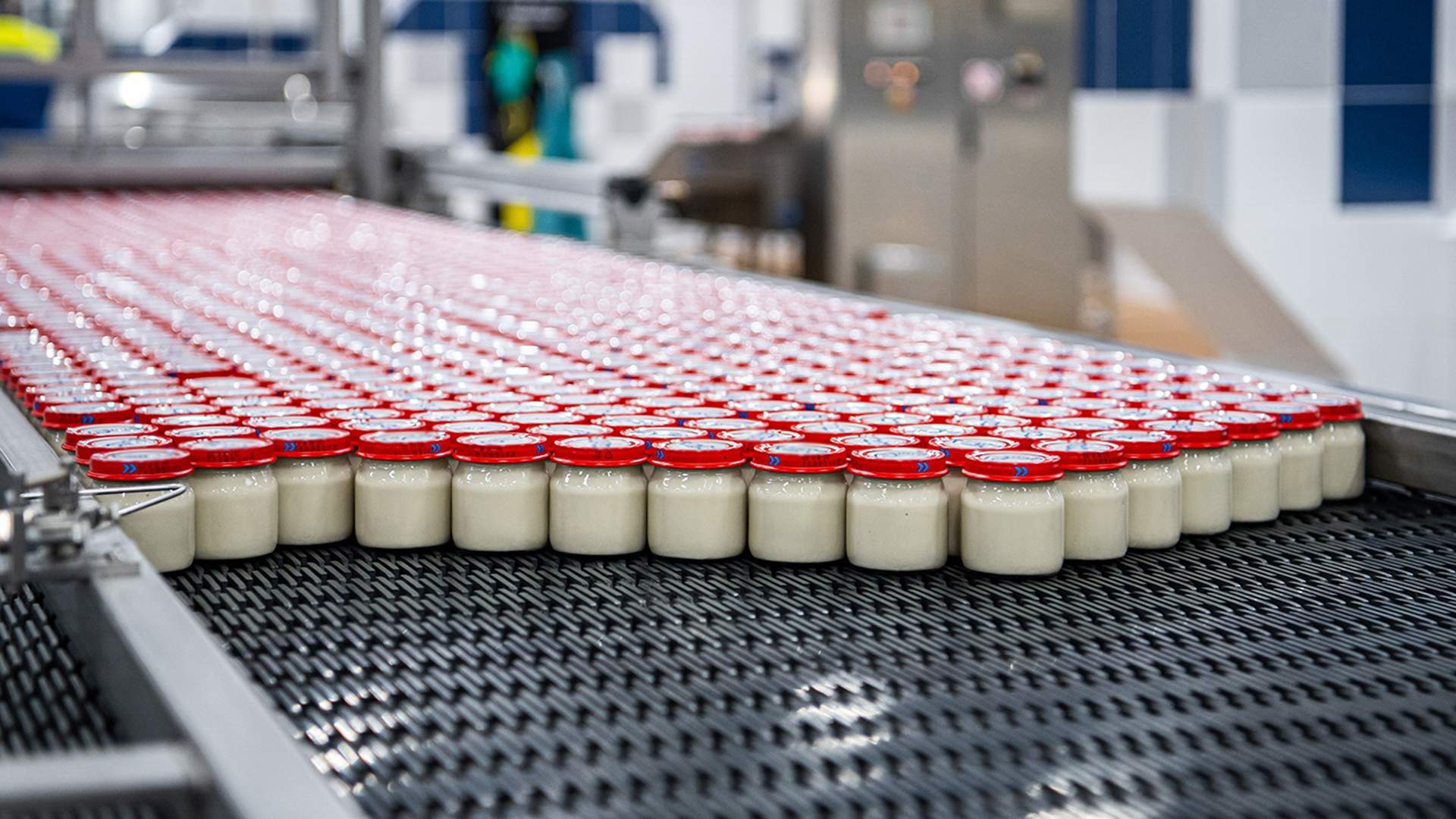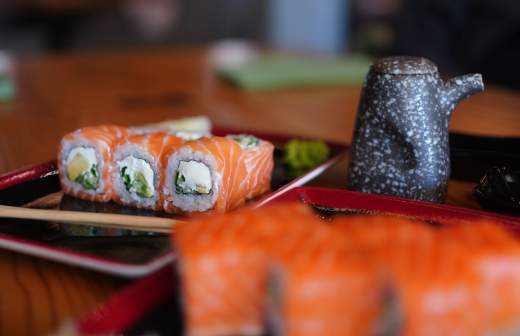Safety from diapers: Russia to update 23 standards for baby food

A large-scale update of the baby food standardization system is being prepared in the Russian Federation. Rosstandart, taking into account the instructions of the Federation Council, is currently developing and updating standards primarily for raw materials and ingredients for baby and specialty nutrition. Some of them will relate to ingredients for dairy nutrition for children under the age of three, which are used in breast milk substitutes and mixtures. Izvestia figured out what to expect for parents and the most vulnerable consumers.
Why do we need new standards?
In order to improve the quality and safety of products for children in Russia, the development of more than 20 updated standards (GOST standards) has begun under the guidance of Rosstandart.
"In accordance with the National Standardization Program, work is underway on 23 standards in the field of baby food — this is an unprecedented value," the press service of the department told Izvestia.
The fact is that most types of specialized food raw materials used in the production of baby food products are still not brought to uniform standards. In addition, the country needs maximum import independence for such key components as lactose, maltodextrin, vitamin and mineral premixes, and protein hydrolysates, which were previously imported from abroad. The nuance is that importers did not disclose their standards and technical requirements for these ingredients, the Federal Agency for Technical Regulation and Metrology explained.
"Localization of the raw material base will lead to lower costs, create new jobs and increase turnover in the baby food segment," the agency noted.
In parallel with the development of standards for products, work is underway to improve the same database of methods for controlling these baby food ingredients, Rosstandart also reported. For example, GOST R "Methods for establishing adulteration of powdered milk and milk permeate with whey", as well as a number of others, will be updated.
At the moment, systematic work in this direction is already underway — standards are being updated as part of the "Promising Standardization Program" (available to Izvestia), explained Antonina Tsitsulina, president of the Association of Enterprises of the Children's Goods Industry (AIDT). According to her, the new GOST standards "play a fundamental role, reinforcing the mandatory requirements of the technical regulations," since "raw materials and ingredients are very specifically regulated in the standards and thus set requirements for processors."
Svetlana Abrosimova, head of the regulatory development group of the Russian Union of Dairy Industry Enterprises (RSPMO), told Izvestia that in the future it is planned to develop standards for such components for the production of baby food products as whey protein isolates (including dry ones), milk protein hydrolysates (including dry ones), concentrates. micellar casein.
"The development of these standards will create a unified regulatory framework for safety and identification indicators for the most important ingredients in the production of specialized nutrition, including nutrition for young children under one year of age,— says Svetlana Abrosimova.
Tatyana Butskaya, First Deputy Chairman of the State Duma Committee on Family Protection, Fatherhood, Motherhood and Childhood, added that the new standards should take into account the individual characteristics of children — allergies, intolerances, colic.
Full import independence
The new GOST standards are designed not to complicate the lives of manufacturers, but, on the contrary, to provide clear guidelines in the context of technological growth and new knowledge about children's health. The Federation Council emphasizes that there will be no shortage due to the revision of standards. According to Senator Olga Epifanova, updating the regulatory framework should increase consumer confidence, help develop domestic production and strengthen Russia's position in the segment of high-quality baby food on the global market. "This will only strengthen our exports," she said.
— First of all, it's time to review the standards regarding the ingredients of breast milk substitutes, — says Epifanova. — The fact is that most of them came from abroad, and now the "sanctions curtain" is working only to strengthen the domestic baby food industry.
Without monitoring and localization of these components, it is impossible to guarantee the safety and quality of nutrition, which is critical, given that the child consumes significant amounts of dry mixes daily, says Tatiana Butskaya.
"Tragic stories from the United States and Israel related to vitamin deficiencies or contamination of baby food clearly demonstrate how important government responsibility and serious control are," she notes.
Butskaya insists that an urgent and in-depth revision of outdated standards is now required, such as GOST standards, which actually remained in the last century and do not take into account the latest achievements in pediatrics and manufacturing technology. In her opinion, Rosstandart should pay special attention to children with extremely low body weight and premature babies, for whom breast milk is not just food, but a real remedy.
— It is important to recognize that most healthy children can do without artificial breast milk substitutes, but we have an alarming trend of early and widespread switching to formula, due to insufficient support for breastfeeding and aggressive marketing by pharmaceutical companies in maternity hospitals, — complains the deputy of the State Duma and a member of the Union of Pediatricians of Russia.
Do new standards not guarantee quality?
However, not all market participants equally welcome Rosstandart's initiative. According to Anna Krasnopolskaya, CEO of an Open Distribution Company, additional standards are not required today, because "baby food is already a fairly regulated industry." She notes that "any new regulatory documents will require the recertification of products, which will take a long time and money." As an example, an industry participant cites the situation with the certification of pureed poultry meat, which took manufacturers six months last year due to the new technical regulations.
At the same time, Krasnopolskaya emphasizes: "In my memory, there has not even been a single case of adulteration of raw materials on the baby food market."
At the same time, the initiative to create standards for ingredients is supported by other major manufacturers. Artyom Belov, CEO of Soyuzmolok, claims that "the current GOST standards for finished products ensure that there is no place for low-quality or dangerous products for children's health on store shelves." However, according to him, for the further development of the industry and ensuring complete independence from imports, it is critically important to develop modern standards specifically for ingredients: milk proteins, fats, vitamin premixes and other components used in production.
The safety and quality of baby food products is currently regulated by the EAEU technical regulations, the requirements of which should also be reflected in the new GOST standards, said Tatiana Sokolova, Category manager at Infaprim JSC.
"We generally support the revision of current GOST standards and the development of new standards for raw materials and baby food products, as new components and innovative technologies are emerging," says a representative of the food manufacturer. — However, it should also be added that the creation of new standards does not guarantee an improvement in the quality of raw materials, since manufacturers of ingredients will not be ready to produce them specifically for baby food. That is, the introduction of new standards for raw materials for baby food will not solve our main problem — the lack of production of some ingredients in the Russian Federation," Sokolova believes.
Andrey Plyshevsky, Chairman of the Board of the Association of Enterprises of the Social Nutrition industry, recalls that, unlike the mandatory technical regulations (TR CU), "all GOST standards are advisory in nature." But even recommendation standards play an important role in protecting children's health and can become a criterion for manufacturers focused on high quality. New GOST standards for ingredients, including for adapted milk formulas, can strengthen confidence in products and simplify their control, he believes.
What to look for when buying baby food
Russia currently has a fairly strict system for monitoring baby food. Although Anna Zavyalova, a professor at the Department of Propaedeutics of Childhood Diseases with a course in general child care at the Pediatric University, recommends that parents carefully study the labeling on packages. It is important that the label contains information that this product is intended specifically for children, so that the age from which it is allowed for nutrition is indicated, because the "cats and mice" on the box do not mean that the product is for children. It is necessary to choose children's products from large manufacturers, this ensures that the composition is of high quality, and production is located on dedicated lines and workshops.
— Breast milk substitutes are a special category of products that a baby needs from the very first days if he cannot receive breast milk, — says Anna Zavyalova. — And if we change and add something in this area, then gradually, so that we do not lose the products available on the market, because nutrition is the basis of health, laid in childhood for the future.
The control of baby food in our country is very strict today, but consumers should also be attentive. She advises checking the expiration date, examining the labeling and storage conditions, and after bringing it home, wash it, put the product in a clean bowl and then give it to the child.
Переведено сервисом «Яндекс Переводчик»











